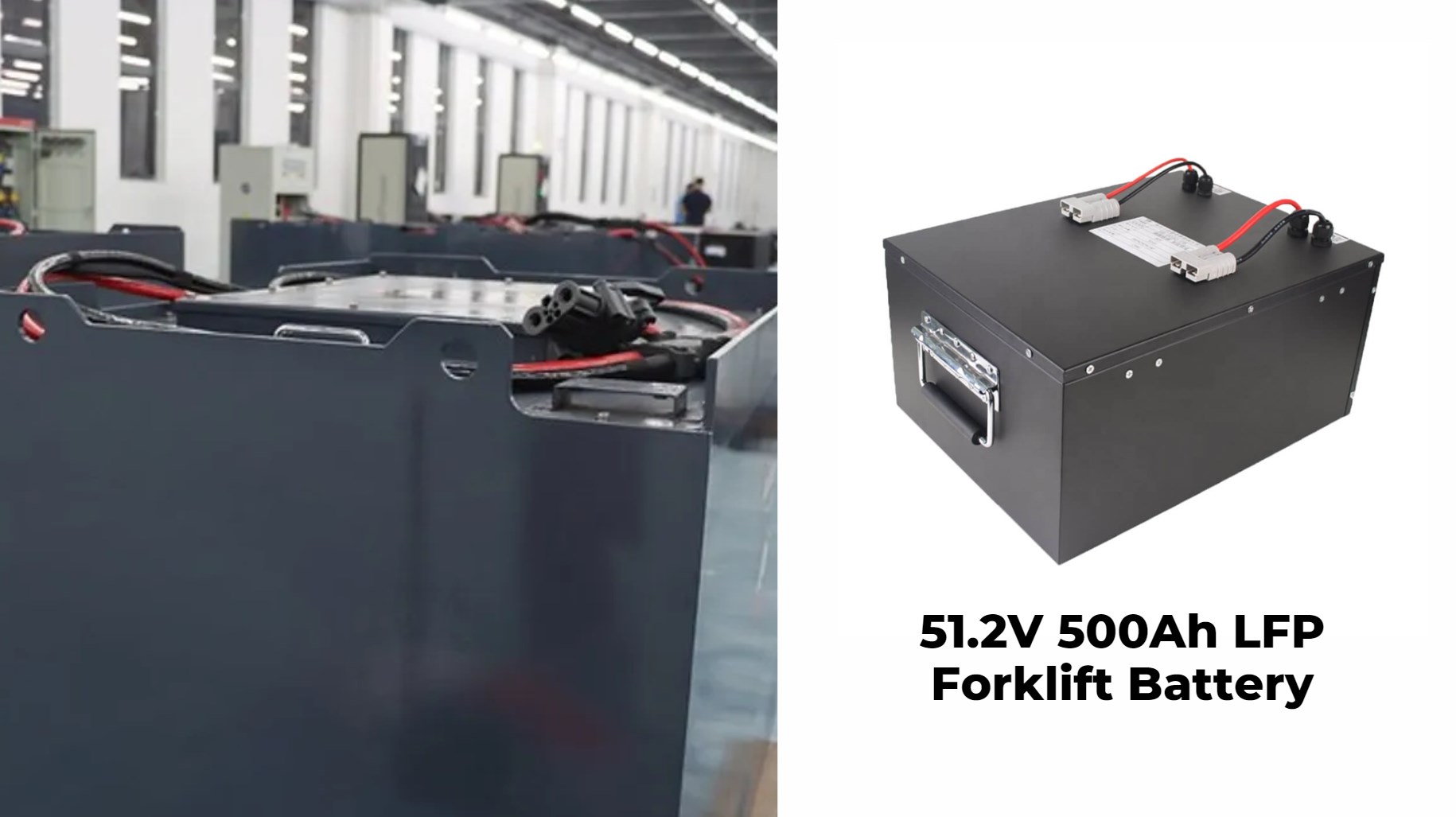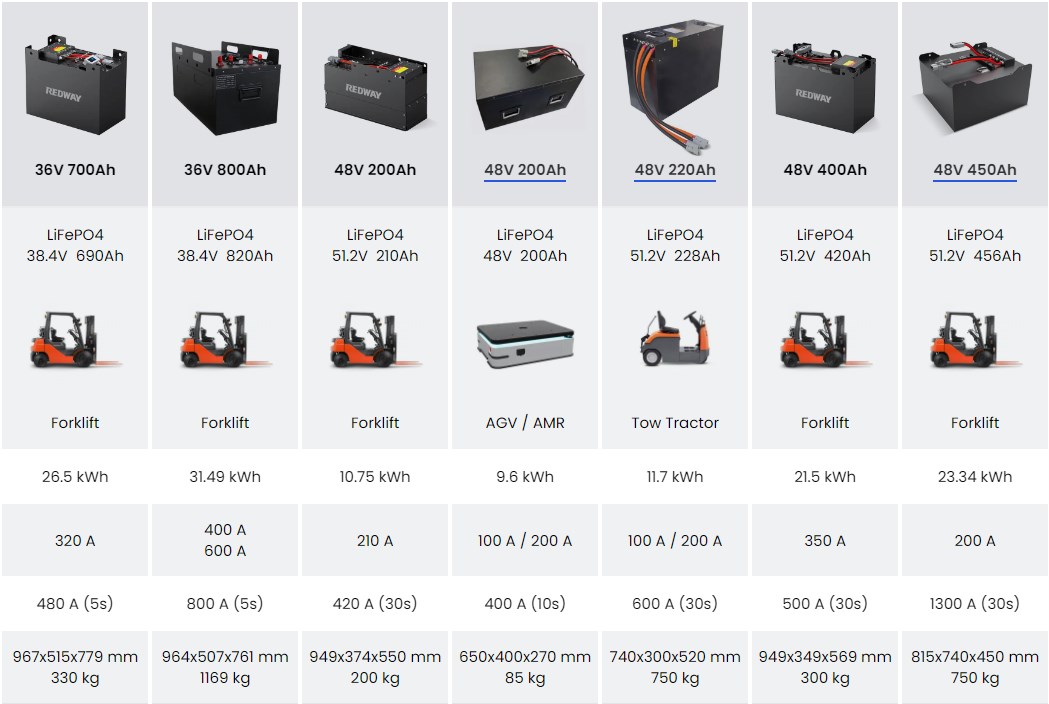Understanding forklift battery types is crucial for optimizing operational efficiency and minimizing costs. The primary types include lead-acid, AGM, and lithium-ion batteries, each offering distinct advantages and challenges that influence their application in various industrial settings.
The primary types of forklift batteries include lead-acid, absorbed glass mat (AGM), and lithium-ion. Lead-acid batteries are traditional and economical, AGM batteries provide maintenance-free operation, and lithium-ion batteries are known for their efficiency, quick charging, and low maintenance needs, making them ideal for high-demand environments.
| Type | Description | Pros | Cons |
|---|---|---|---|
| Lead Acid | Traditional battery with liquid electrolyte | Cost-effective; widely available | Requires maintenance; heavy |
| AGM | Sealed battery with absorbed electrolyte | Maintenance-free; safer | Shorter lifespan under heavy use |
| Lithium-Ion | Advanced technology with high energy density | Fast charging; lightweight | Higher upfront cost; sensitive to heat |
How Do Lead Acid Forklift Batteries Work?
Lead-acid forklift batteries work by converting chemical energy into electrical energy through a chemical reaction between lead plates and sulfuric acid. When the battery discharges, lead sulfate is formed on the plates. Recharging reverses this process, restoring the battery’s energy capacity for repeated use in forklifts.
Wholesale lithium golf cart batteries with 10-year life? Check here.
What Are the Benefits of Absorbed Glass Mat (AGM) Forklift Batteries?
AGM forklift batteries offer several benefits: they are maintenance-free, leak-proof, and can handle deep discharges better than traditional lead-acid batteries. They also charge faster and have a longer lifespan. Their design makes them safer to use in various environments, reducing the risk of spills or contamination.
Why Are Lithium-Ion Forklift Batteries Gaining Popularity?
Lithium-ion forklift batteries are gaining popularity due to their high efficiency, rapid charging capabilities, and minimal maintenance requirements. They last longer than traditional batteries and provide consistent power output. Their lightweight design also allows for more flexibility in warehouse operations, making them an attractive choice for busy environments.
Want OEM lithium forklift batteries at wholesale prices? Check here.
Know More:
What Are the Different Types of Forklift Batteries?
What Is a 36 Volt Forklift Battery?
What Is a 24V Forklift Battery?
What Is a 12V Forklift Battery?
How to Maintain Each Type of Forklift Battery?
To maintain lead-acid batteries, regularly check water levels and clean terminals. AGM batteries require less maintenance but should be inspected for damage. Lithium-ion batteries need minimal upkeep; just ensure they’re charged properly. Always follow manufacturer guidelines for specific care instructions based on battery type.
Proper maintenance varies by battery type:
- Lead Acid: Regularly check water levels and clean terminals.
- AGM: Minimal maintenance; ensure terminals are clean.
- Lithium-Ion: Monitor temperature and avoid overcharging.
What Factors Should Be Considered When Choosing a Forklift Battery?
When choosing a forklift battery, consider factors like battery type (lead-acid, AGM, or lithium-ion), capacity (how long it lasts), charging time, maintenance needs, cost, and compatibility with your forklift model. Evaluate your operational demands to select the best battery type for your specific needs.
Considerations include:
- Cost: Initial investment vs long-term savings.
- Application: Match battery type with operational demands.
- Maintenance: Assess your ability to perform regular upkeep.
How to Extend the Life of Forklift Batteries?
To extend forklift battery life, ensure regular maintenance like watering lead-acid batteries and keeping terminals clean. Avoid deep discharges whenever possible and charge batteries fully after each use. Store them in a cool environment when not in use to prevent overheating and deterioration.
To maximize battery life:
- Schedule regular maintenance checks.
- Avoid deep discharges.
- Ensure proper charging practices.
What Are the Environmental Impacts of Different Battery Types?
Different forklift battery types have varying environmental impacts. Lead-acid batteries can leak harmful substances if not disposed of properly. AGM batteries are more environmentally friendly due to their sealed design. Lithium-ion batteries have a lower carbon footprint but require responsible recycling practices due to their materials.
Battery disposal poses environmental concerns:
- Lead-acid batteries can leak toxic materials if not disposed of properly.
- Lithium-ion batteries require specialized recycling processes due to their chemical components.
How to Properly Dispose of Old Forklift Batteries?
To properly dispose of old forklift batteries, take them to a certified recycling facility that handles hazardous waste. Many suppliers or local waste management services offer recycling programs for lead-acid and lithium-ion batteries. Never throw them in regular trash; proper disposal helps protect the environment from toxic materials.
Follow local regulations for battery disposal:
- Contact recycling facilities specializing in hazardous waste.
- Ensure safe transport to prevent leaks or spills.
Expert Views
“Selecting the right forklift battery can significantly impact your operational efficiency,” says John Doe, an expert from Redway. “Understanding each type’s strengths and weaknesses allows businesses to make informed decisions that align with their specific needs.”
Conclusion
Choosing the right forklift battery is essential for optimizing warehouse operations. By understanding the differences between lead-acid, AGM, and lithium-ion batteries, businesses can select options that best meet their needs while considering maintenance requirements and environmental impacts.
FAQ Section
- What is the most common type of forklift battery?
Lead-acid batteries are the most widely used due to their affordability. - How long do lithium-ion forklift batteries last?
Lithium-ion batteries can last between 2,000 to 3,000 cycles with proper care. - What maintenance do lead-acid batteries require?
They need regular watering and terminal cleaning for optimal performance.







